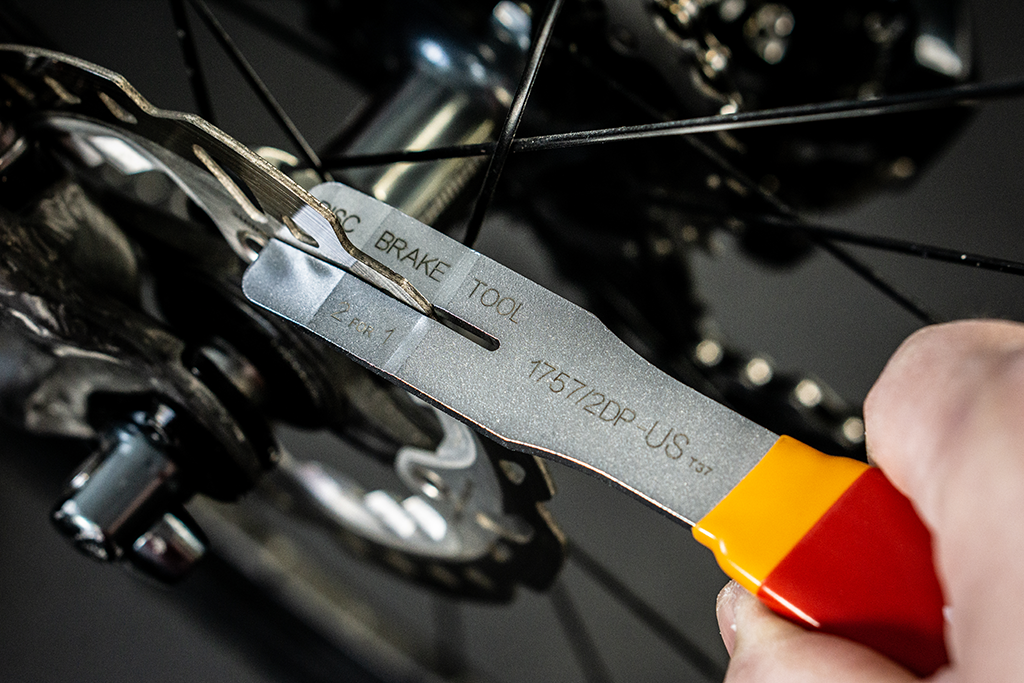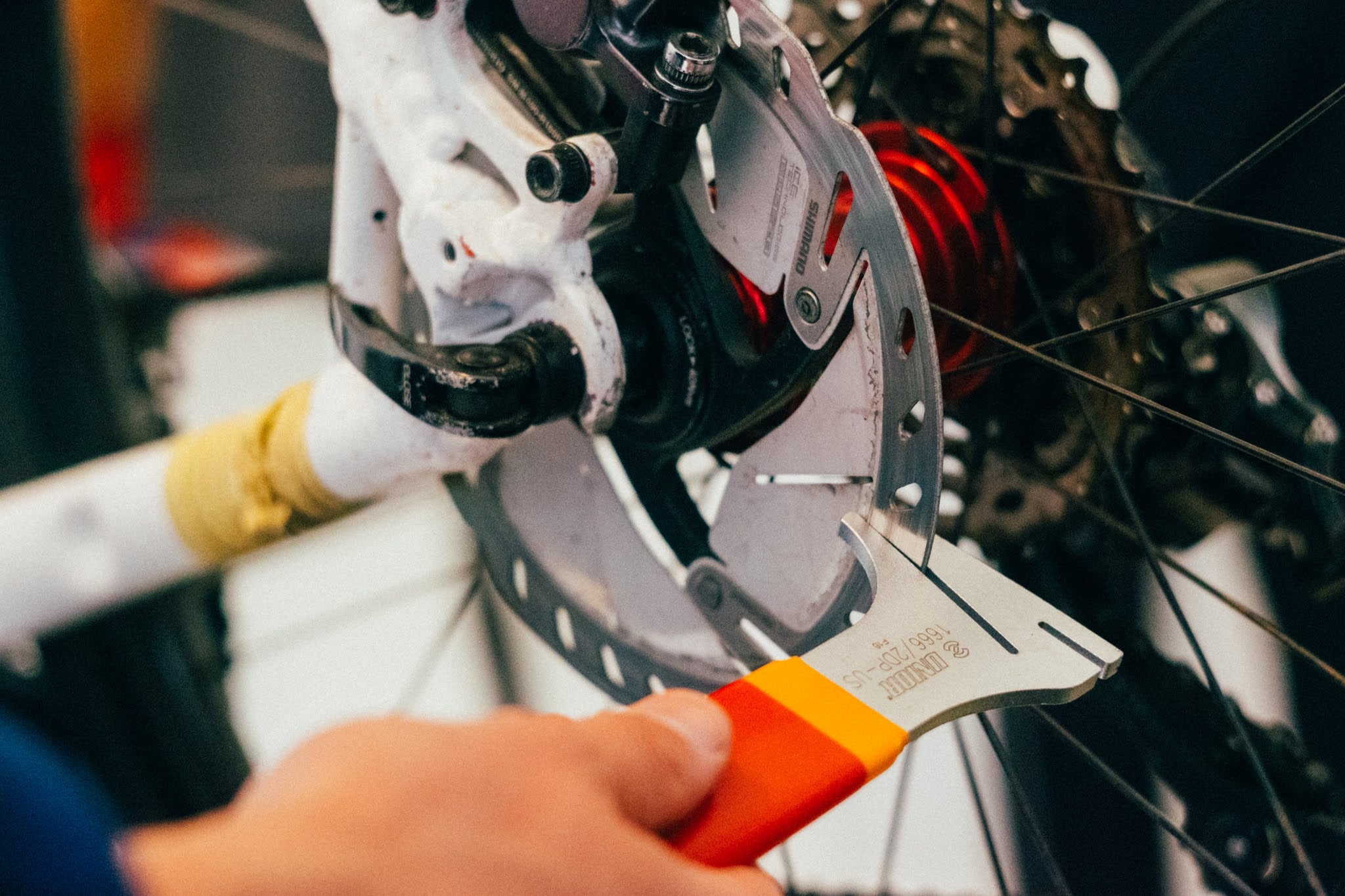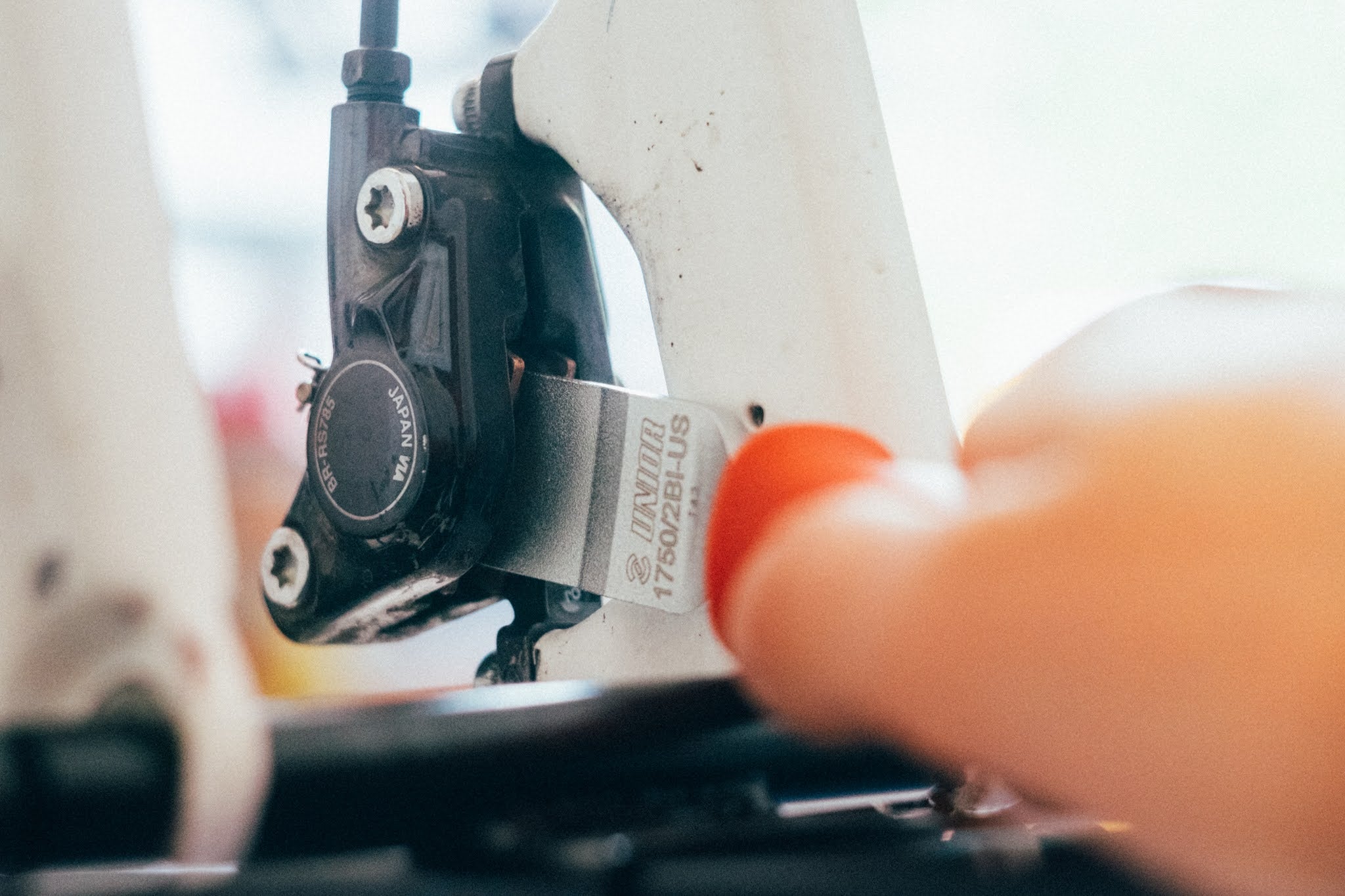
Fix Disc Brake Rub
Share
With discs becoming the norm on many bikes now it's easy to forget that, unlike the music of Fleetwood Mac, they are sometimes imperfect. They may offer greater stopping power, modulation, and wet weather performance than their rim brake counterparts, but they can suffer horribly from brake rub. There will be few among us who haven't woken up excited for the ride ahead and upon wheeling the bike out of the house noticed that faint but impossible to ignore tsss tsss tsss of the rotor catching on the pads ever so slightly. Worry not, as there are a few remedies to get your wheels spinning fast and silent once again.
First up is to check on the health of the rotors themselves. While they may claim to be high tech they are at their heart a disc of metal, and as such can warp and bend slightly, either through exposure to high heat (think long mountain descents), or through impact. Take a good look at them as they spin to see if they're true, and if not, using the appropriate tool, gently bend them back into line.
Secondly it pays to make sure your disc calipers are centered, that way both pads will engage simultaneously and not bend the rotor as it spins and reduce the risk of rub. To do this simply loosen the caliper bolts, engage the brake, and with the brake lever fully depressed tighten the bolts back up again. Bear in mind though this works best when your rotors are actuating in unison - if they aren't then you need to address that.
With use and age the pistons in your calipers can become a little sticky, meaning they don't fully retract and leave the pad too close to the disc. This can be rectified by using a piston spreader. Simply remove the wheel, and with the pads still in (as the pistons themselves are often delicate and ceramic) gently push the pistons back into their proper place. We find this far and away the most effective method, and should keep you noise free for a few rides at least. However, if you’ve got particularly sticky pistons this may need to become a regular part of your workshop routine - or seek professional help.
(We have a special tool that combines truing and piston spreading in one rather than having 2 individual tools. It's the 2-in-1 Disc Brake Tool.)
It’s also worth saying at this point that you should keep any tool that comes into contact with either the disc rotor or pads meticulously clean. Any grease or oil on either will risk perpetual brake squeal or worse, reduced braking performance. You should also make sure to never pull the brake lever on without the wheel in as you risk popping the pistons straight out and dumping a load of hydraulic fluid onto the floor and your brake pads.



